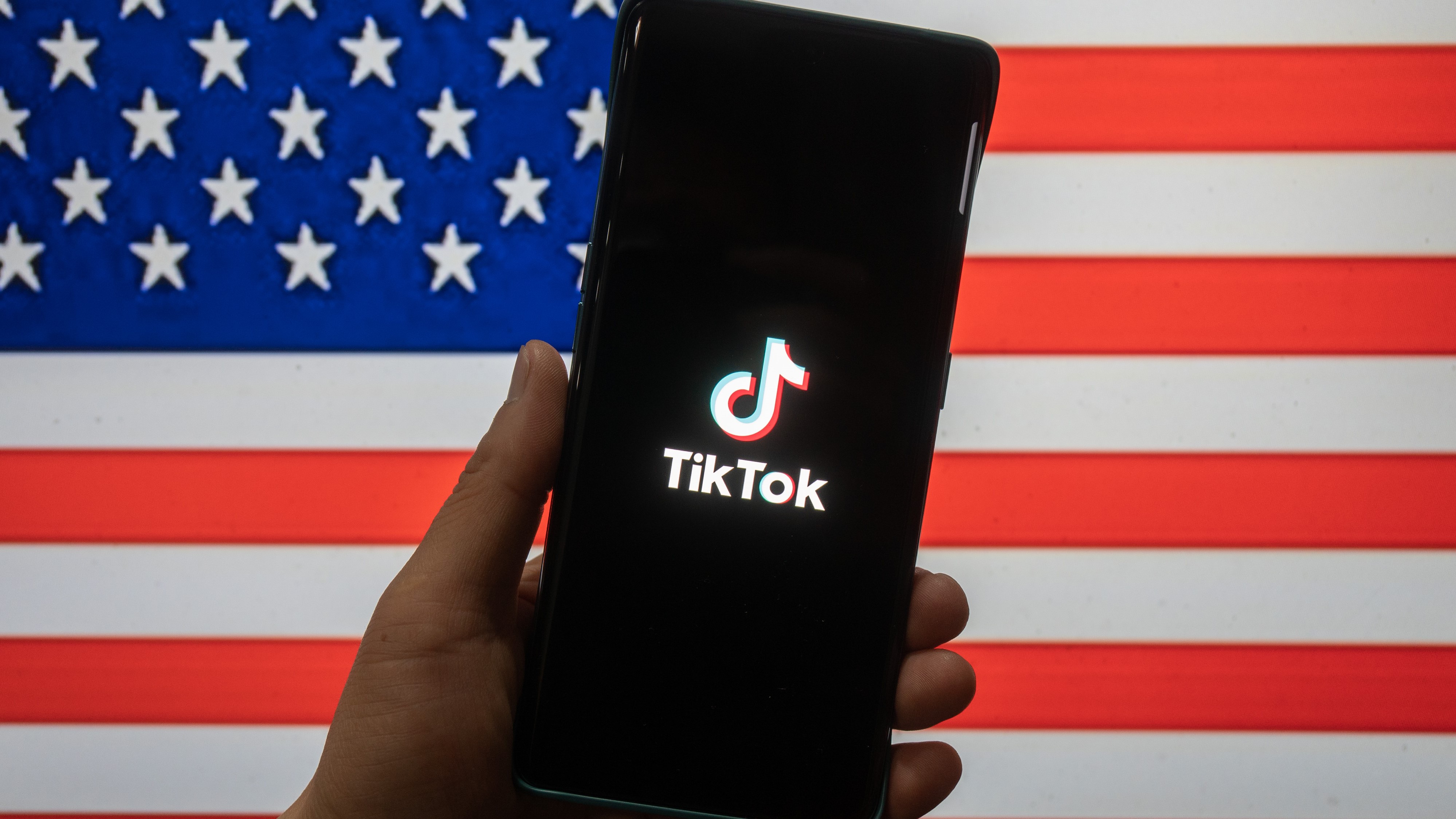Why TikTok users should be concerned about the RESTRICT Act
An outright TikTok ban has never looked so possible

Tensions between the US government and TikTok aren't new. However, while banning the Chinese-owned video-sharing app from federal devices did not encounter many legal obstacles, things get more complicated when it comes to banning the app for all Americans citizens. Until now, at least.
With the bipartisan proposed legislation the RESTRICT Act, the government appears to be seeking to make an outright TikTok ban lawful by establishing a framework to review and scrutinize foreign technologies considered a threat to national security.
Here's what the Restrict Act would mean for TikTok users and how VPN services might not be able to help.
What is the RESTRICT Act
Short for the Restricting the Emergence of Security Threats that Risk Information and Communications Technology Act, the RESTRICT Act will give more powers to the Department of Commerce to evaluate and restrict foreign information communication technologies that pose a significant risk to US national security.
"This bill presents a systematic framework for addressing technology-based threats to the security and safety of Americans," reads an official statement, praising the bipartisan effort of its creators.
At the time of writing, the foreign adversary list names China, Iran, North Korea, Venezuela, Russia and Cuba. However, the government can add new entries in the future.
Despite TikTok not being explicitly named throughout the text, the app has been mentioned several times to the press as an example of technology to be restricted under the Act.
Critics are growing among experts and internet activists warning of its "dangerous broad language" that could have far-reaching negative impacts on Americans' digital rights.
A spokesperson for popular VPN provider Private Internet Access told TechRadar: "The RESTRICT Act would impose unacceptable restrictions on citizens’ digital freedom and raises serious questions over how far the government is willing to compromise the privacy rights of its citizens."
1. A way to bypass TikTok ban's legal issues
As mentioned before, a TikTok ban isn't as straightforward as we might think.
The biggest impediment is the First Amendment which protects American freedom of speech—no matter if these communications involve foreign adversaries.
There's also another law, known as the Berman Amendments, that restricts the President's power in regulating or forbidding the free flow of information in and out of the country.
All this makes banning TikTok for all American citizens an unconstitutional decision. Something that the RESTRICT Act aims to challenge.
“It would still mean that any ban would have to be justified by an important governmental interest & [] would have to be narrowly tailored to address that interest,” @CaitlinVogus said. “I think that those are two significant barriers to a TikTok ban.”https://t.co/vw6QIId7adApril 5, 2023
It's not the first time that a US President has tried to block the popular video-sharing app, owned by Chinese-based company ByteDance.
The Trump administration tried to do that in 2020—a year after he managed to ban the Chinese tech firm Huawei from doing business with any US companies.
TikTok replied by filing a lawsuit against the US government, which halted the plans to sell part of the social media giant to American companies. President Biden eventually revoked all these measures once he came into power.
Not only could ByteDance easily challenge a possible ban in court on constitutional grounds, but the US government seems to have failed to justify with concrete evidence either an outright block or forced sale for national security reasons.
Two years later, the story looks to be repeating.
While similar proposed legislations—namely the Data Act and the ANTI-SOCIAL CCP Act—appear to be still limited in reach, the Restrict Act could be just the right solution for coping with these legal challenges.
If it becomes law, it will de-facto empower the Secretary of Commerce to decide which technologies Americans can or cannot access.
Even worse, decisions could occur with "extremely limited oversight by the public or its representatives about the law’s application," experts at digital rights advocacy group the Electronic Frontier Foundation (EFF) warned in a blog post.
Section 12 of the Bill exempts lawmakers from providing details around their decision process. The role of the Congress appears to be quite limited, too, being constrained in overriding the designation or de-designation of a foreign adversary.
"The RESTRICT Act makes it less likely that the public would ever learn whether U.S. officials actually have information to justify the mitigation measures authorized by the bill," wrote EFF.
2. A TikTok VPN might not be of help
Another provision included in the RESTRICT Act is also raising concerns about the lawfulness of using a TikTok VPN or any other circumvention tools to keep accessing the app in case a total ban will eventually be enforced.
A VPN is security software that spoofs users' IP address location while encrypting all the data leaving a device.
VPN use has been soaring worldwide lately as a means to bypass online censorship as this practice is sadly on the rise everywhere. As a reaction to this, VPNs get increasingly blocked too.

One of its creators, Senator Mark Warner firmly rejected any allegations that the Act would be used against ordinary citizens. "This legislation is aimed squarely at companies like Kaspersky, Huawei, and TikTok that create systemic risks to the United States' national security—not at individual users," he said.
However, the bill's broad language is again a reason of worrying as it opens up to future misuse and abuses.
As experts at EFF explained, the ACT empowers the Department of Commerce to impose "mitigation measures" (without explaining what measures might be) as well as punish any person who "evades" these measures with up to 20 years of jail time.
Even though the current Administration doesn't intend to prosecute consumers, a new government or a court could interpret the provision making anyone using a VPN to access TikTok on US soil responsible for breaking the law.
"Congress absolutely should tighten this penalty language to remove all possibility of prosecution against individuals who use an app," said EFF.
3. TikTok users' freedom of expression at risk
Arguably the most downloaded app worldwide, TikTok counts over 150 million users in the US alone.
Initially popular for viral dances and entertainment content, TikTok is now increasingly used for accessing news as well. US activists use the Chinese social media giant to spread their messages, while it's helping businesses—especially the smallest ones—to thrive.
The RESTRICT Act raises serious questions over how far the government is willing to compromise the privacy rights of its citizens.
Private Internet Access (PIA)
A total TikTok ban means that about a third of the population will see their right to freely express themselves and access information through the platform curbed.
"Prohibiting the use of certain technologies or social media sites bleakly opposes the vision of an open and free digital world and raises serious concerns over the future of digital freedom in the US," PIA told TechRadar.
At the same time, online censorship will rise in the United States—a country notorious for actively criticizing the likes of China and Russia for restricting US-based social media sites. According to EFF, this will weaken the "credibility when doing so in the future."
Riana Pfefferkorn, a research scholar at the Stanford Internet Observatory, raised a similar point to WIRED: "It’s a maddening irony that American legislators’ idea for countering China is to act more like China, home of the Great Firewall that censors its citizens’ free access to the flow of information."
4. Not just TikTok
Last but not least, the RESTRICT Act isn't targeting TikTok only.
The proposed legislation has the power to impact an awful lot of technologies transferring users' data, as long as they are used by more than 1 million US users. These include web applications, AI software, machine learning, quantum computing, post-quantum cryptography and more.
And, being that TikTok users are likely to be actively using different types of technologies, they can be disproportionately impacted on different levels.
The RESTRICT Act is not a simple TikTok ban, it’s a threat to free expression on the internet. And it’s got support from both parties (and the White House). We need to act quickly and STOP this bill! Take action here:https://t.co/g8TS5f2sRy#RESTRICTAct #RestrictThisApril 5, 2023
Introduced on March 7, the RESTRICT Act is currently passing through the Congress. It will need to gain its way in the Senate as well, though, before falling on President Biden's desk.
At the same time, the State of Montana passed a law on April 15—the first of its kind—to forbid app stores from making TikTok available to download while banning the company operations in the State.
Despite this, new legislation is likely to face the aforementioned legal challenges together with other logistical issues. Such a move might create a domino effect in the country with more and more US States trying to enforce similar provisions.
Whether or not either the RESTRICT Act or another TikTok ban law would be implemented, experts are pushing lawmakers to work towards a comprehensive data privacy regulation like the proposed ADPPA instead.
"The US government should worry less about restricting access to certain technologies and instead work towards strengthening the nation’s laws protecting citizen’s privacy and data security, which are currently inconsistent and provide inadequate protection of citizens’ rights," PIA told TechRadar.
Sign up to the TechRadar Pro newsletter to get all the top news, opinion, features and guidance your business needs to succeed!

Chiara is a multimedia journalist committed to covering stories to help promote the rights and denounce the abuses of the digital side of life – wherever cybersecurity, markets, and politics tangle up. She believes an open, uncensored, and private internet is a basic human need and wants to use her knowledge of VPNs to help readers take back control. She writes news, interviews, and analysis on data privacy, online censorship, digital rights, tech policies, and security software, with a special focus on VPNs, for TechRadar and TechRadar Pro. Got a story, tip-off, or something tech-interesting to say? Reach out to chiara.castro@futurenet.com